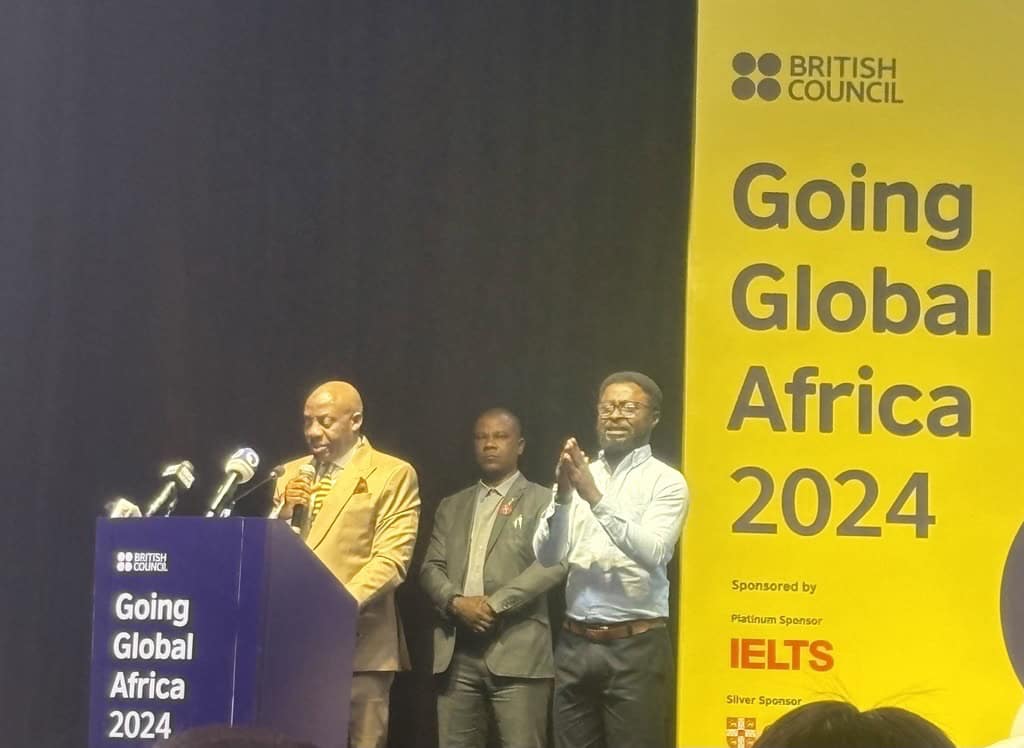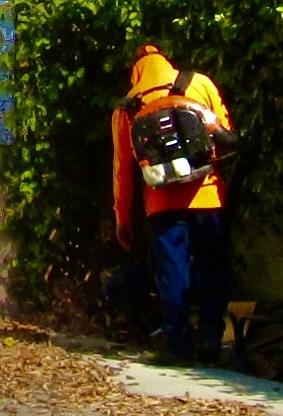UK, African Nations Forge Educational Alliances at Abuja Conference
“Many of you in your own countries are working hard to build your own tertiary systems, and we realize that we need to work in stronger partnerships with you,” UK High Commissioner to Nigeria Richard Montgomery told delegates at the Going Global Africa 2024 conference in Abuja last week.
The conference, which took place from November 26-28, brought together representatives from higher education institutions and civil servants from both Africa and the UK.
Montgomery highlighted the immense potential of Africa’s young population, estimated at around 70% of the continent’s population under 30. “Africa’s growing. Its youth population is huge,” Montgomery told delegates. “The population is going to be 2.5 billion people by 2050… so we need to harness the demographic dividend and work harder to build institutions that are sustainable and more resilient.”
He emphasized that “We all know that social progress and economic growth and prosperity rely on a healthy tertiary education system.”
A Shared Vision for International Educational Ties
Nigeria’s Minister of Education, Dr. Olatunji Alausa, echoed the call for strengthened educational partnerships.
“We need… national universities that are willing to partner with institutions and governments across Africa and the United Kingdom in a mutually beneficial, high-quality, transformational educational partnership,” Alausa stated.
He acknowledged the challenges facing Nigeria’s universities, including financial constraints and the need to accommodate the massive influx of young Nigerians seeking higher education.
“These barriers are by no means peculiar to Nigeria,” Alausa noted. However, he assured delegates that the Nigerian government was “poised” to tackle these challenges.
During the conference, Sir Steve Smith, the UK’s international education champion, underscored theenthusiasm within UK higher education institutions to forge partnerships with their African counterparts.
He revealed plans to lead a delegation of 11 UK institutions to meet potential partners in both Abuja and Lagos. “We want to explore opportunities for sustainable, equally beneficial TNE partnerships with Nigerian institutions,” Smith explained.
We’ll be tackling one of the most pressing priorities of our time, which is ensuring the sustainability and the relevance of tertiary education systems and institutions in Africa
Sir Steve Smith, UK international education champion
Building Sustainable and Relevant Educational Systems for Africa
Sir Steve emphasized that the focus of the Going Global conference was firmly on Africa and stressed the UK’s commitment to building new partnerships with African institutions.
“For the UK government, the key word in all of this is partnership. This is about partnerships. We’re tackling one of the most pressing priorities of our time, which is ensuring the sustainability and the relevance of tertiary education systems and institutions in Africa,” Smith said.
He stressed the need for collaboration, saying “The theme is critical – one that can help us identify key solutions to equip Africa’s youth with the skills and opportunities they need to lead the continent into a prosperous future.”
Sir Smith highlighted the UK government’s international education strategy, emphasizing the importance of education as a driving force for social and economic transformation.
“In Africa, this has to include listening to African voices and leaders to develop respectable and equitable UK Africa partnerships. We need to enhance people-to-people links that support research, collaboration, and align educational goals with the evolving needs of society, all on the basis of mutual respect,” he concluded.
How can these partnerships be structured to ensure they are mutually beneficial and address the specific needs of individual African nations?
## Interview:
**Host:** Joining us today to discuss the recent Going Global Africa 2024 conference in Abuja is Dr. [Guest Name], an expert in international education policy. Dr. [Guest Name], welcome to the show.
**Guest:** Thank you for having me.
**Host:** So, last week saw over [Number] delegates from African and UK Higher Education institutions gather in Abuja. This conference, focused on building stronger educational partnerships, seems timely given Africa’s booming youth population.
**Guest:** Absolutely. The demographics alone make this imperative. As highlighted by UK High Commissioner Richard Montgomery at the conference, Africa’s youth population is set to reach overwhelming numbers by 2050. This presents a unique opportunity but also a significant challenge in ensuring access to quality tertiary education.
**Host:** Dr. Alausa, Nigeria’s Minister of Education, emphasized the need for strong partnerships to address these challenges and build sustainable institutions. Do you think this will lead to tangible results?
**Guest:** I’m cautiously optimistic. The conference underscored a shared vision for international educational ties. Sir Steve Smith, the UK’s international education champion, outlined concrete plans for UK institutions to actively engage with African counterparts.
However, translating these intentions into effectively implemented partnerships will require a long-term commitment from both sides, addressing challenges like funding disparity and ensuring mutual benefits for all involved.
**Host:** Evaluating success in this long game will require acknowledging both the opportunities and hurdles. What are some key takeaways from the conference that could guide future collaborations?
**Guest:**
One crucial takeaway is the need for tailored solutions. Africa isn’t a monolith, and individual nations will have specific needs and priorities. Partnerships need to be context-specific and address these unique challenges.
Secondly, building trust and capacity within African institutions is paramount. This goes beyond financial support and involves knowledge sharing, faculty development, and fostering collaborative research opportunities.
**Host:** Thank you for providing such insightful analysis, Dr. [Guest Name]. I’m sure our viewers will find your perspectives invaluable as we witness the unfolding of this promising collaboration between the UK and Africa in the realm of education.
**Guest:** It’s been a pleasure.



